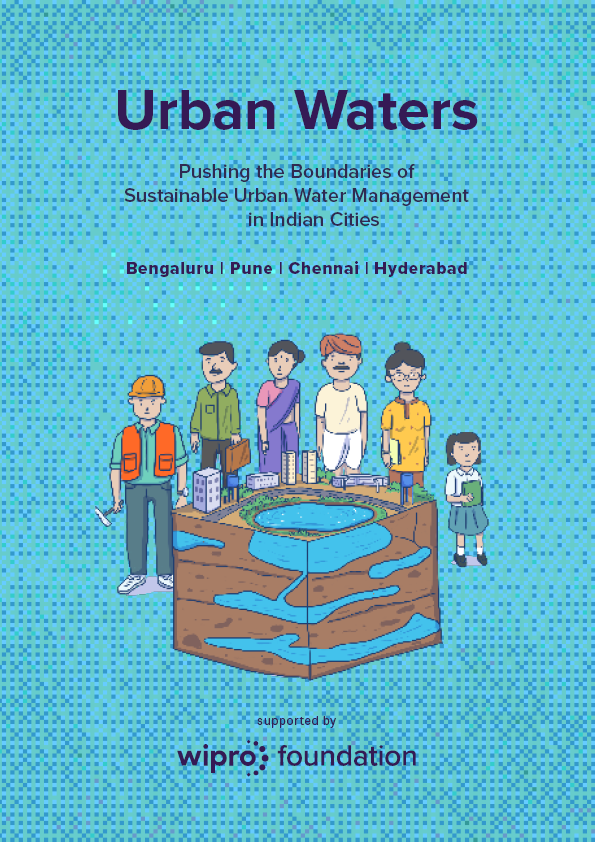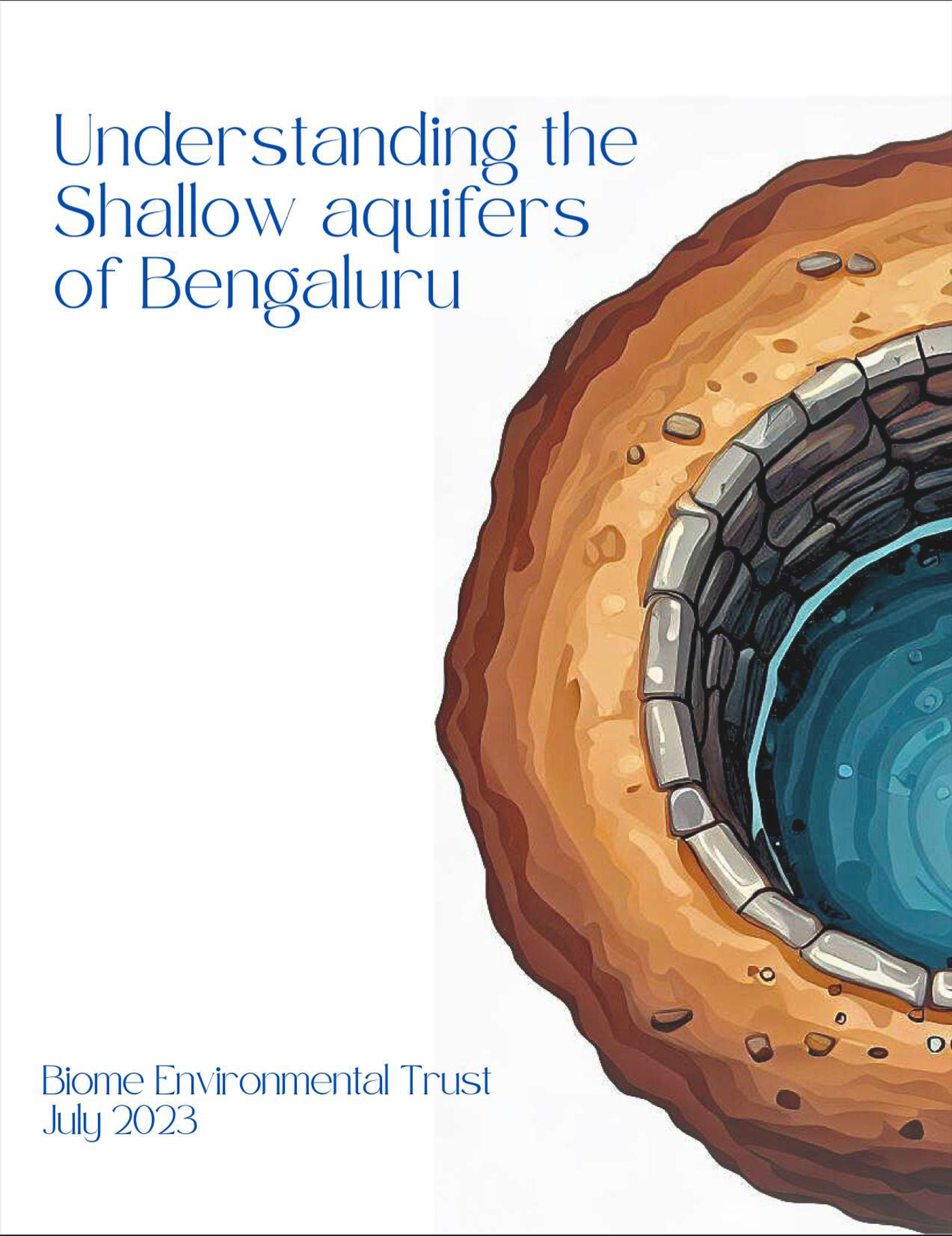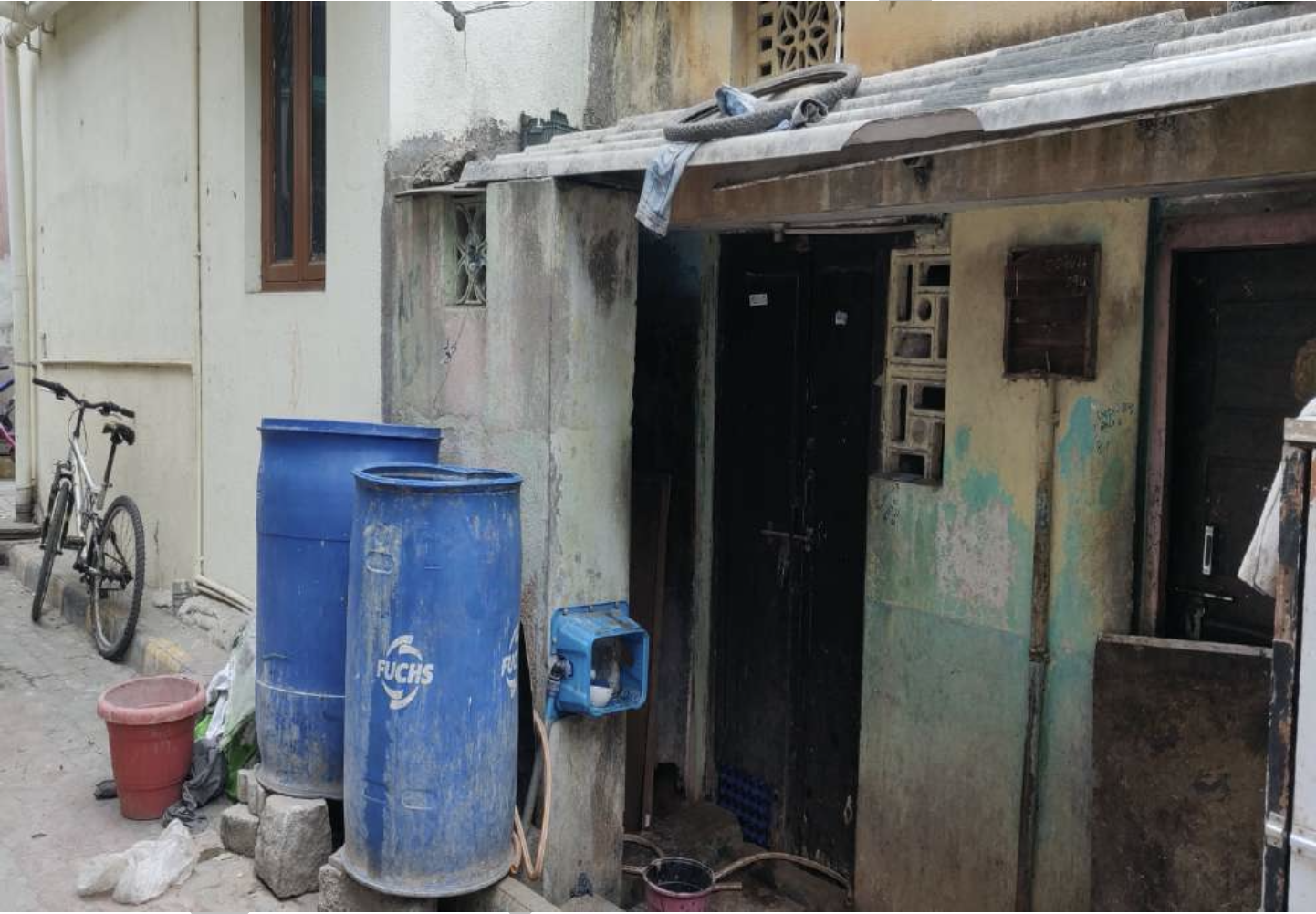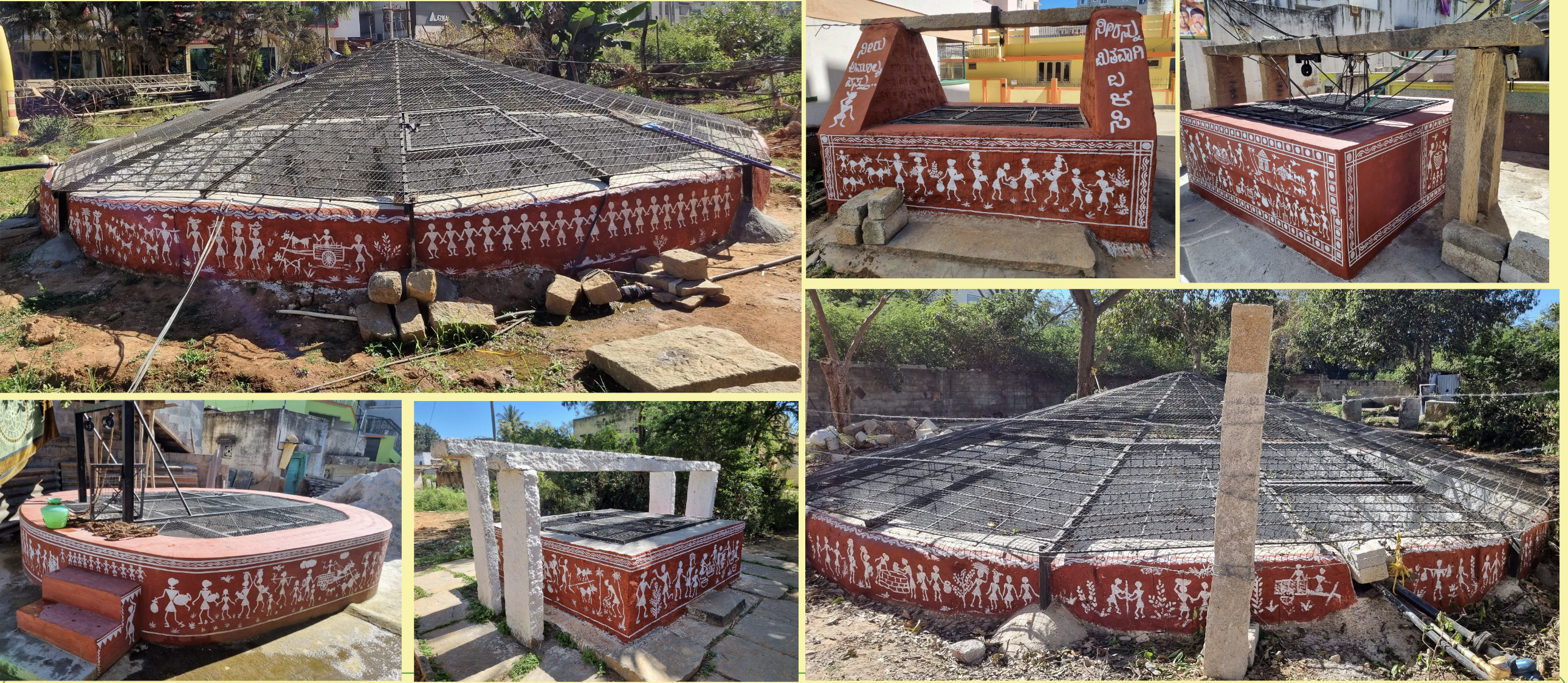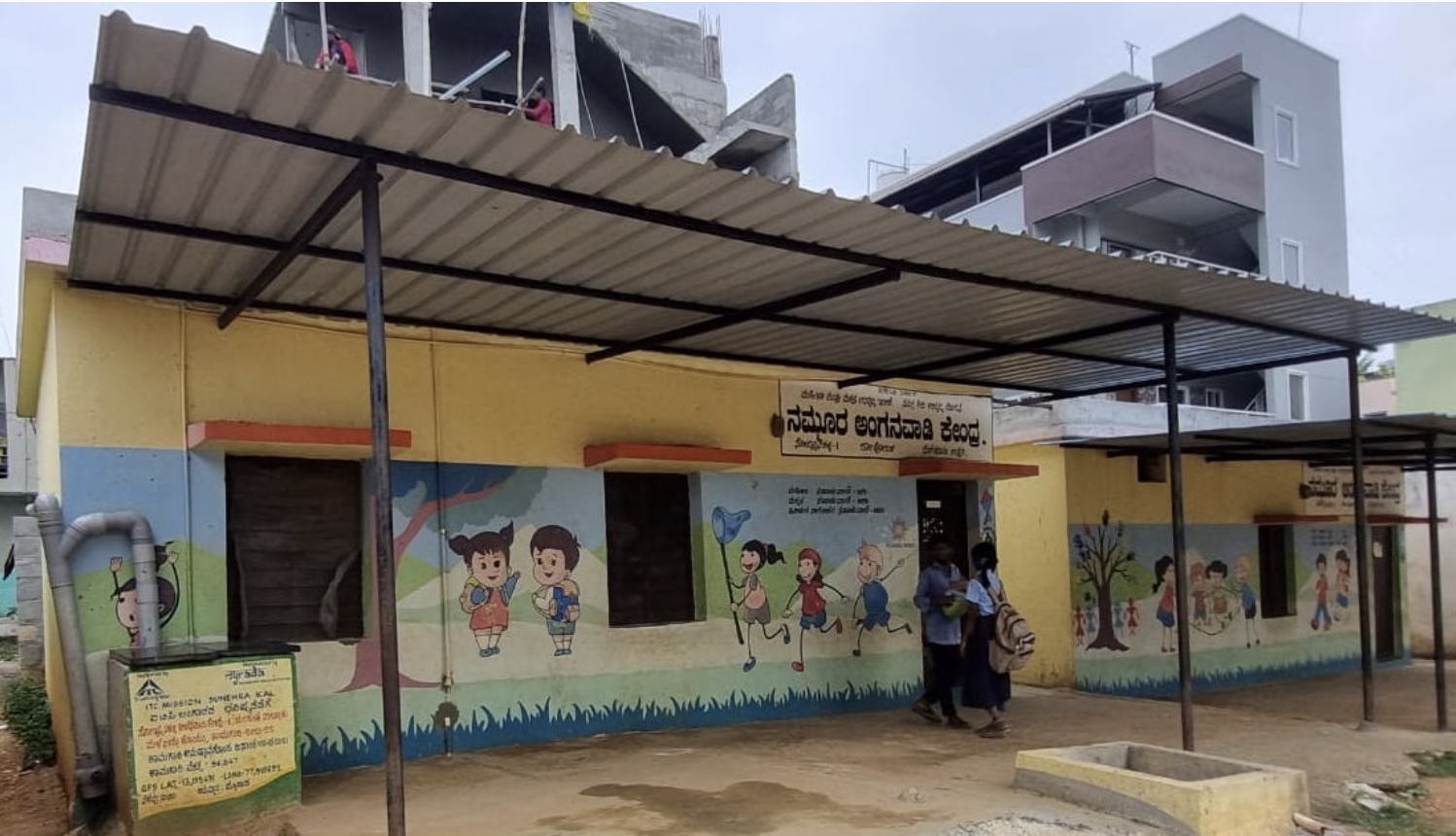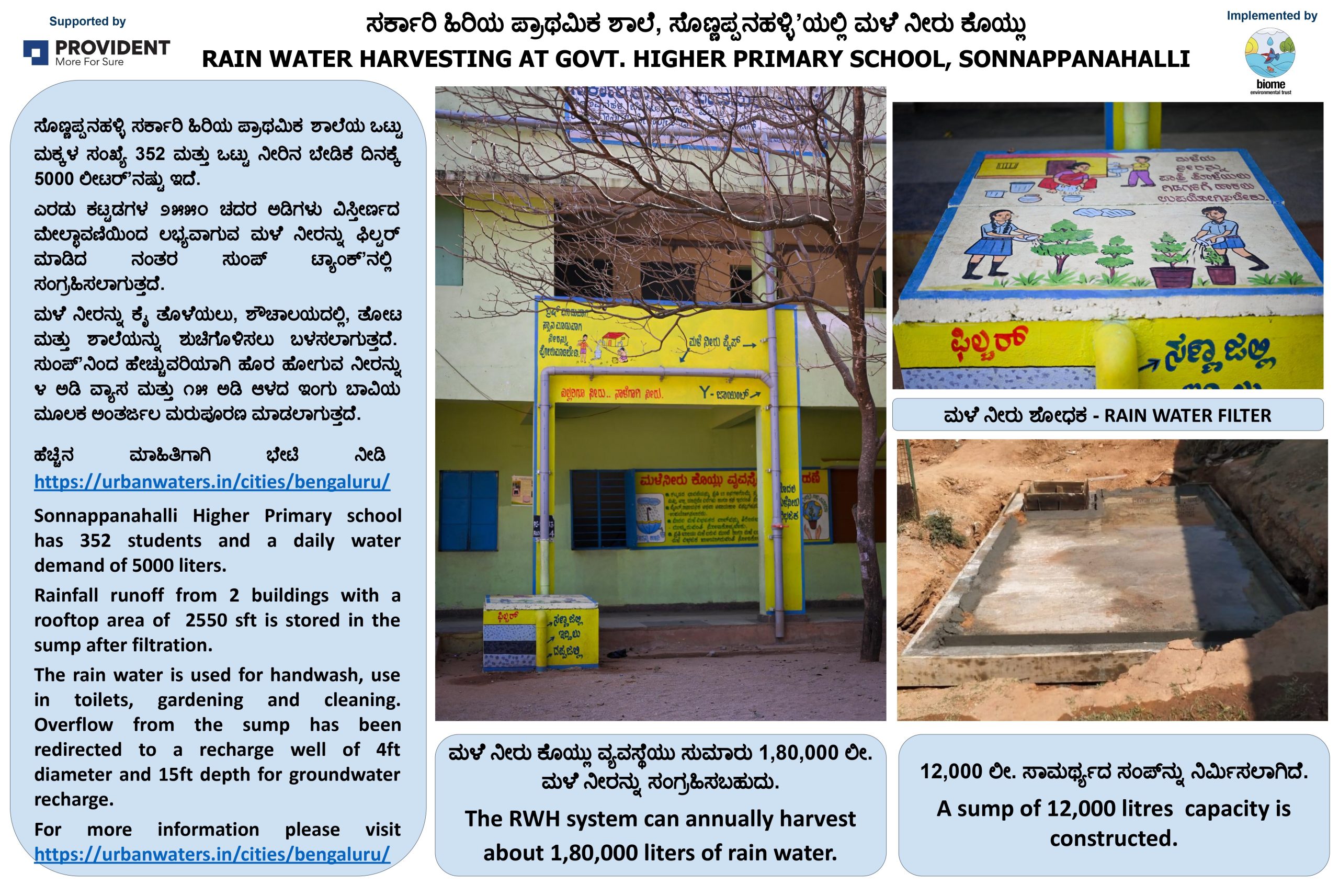WATER MANAGEMENT AT SJR VERITY


SJR Verity, an apartment complex with 334 units and 1000 residents, required 180 KLD (kilolitres per day) of water, mostly supplied by 40 tankers of 6000 L capacity each, costing Rs 2,80,000 monthly. The MC (management committee), embarked on a 3-year-long mission to research and implement sustainable long-term solutions for the water demand. Today, after executing various sustainability measures, the complex has reduced its water intake by 45%, improved the quality of its STP water, and, most significantly, is entirely water self-sufficient.
Sustainability Measures Taken
- IoT-based smart meters for individual flats – Within 3 months of introducing IoT-based smart meters, household water consumption was down by 45%!
- Slab-wise water tariff – A monthly consumption of 100 litres of water per day is free, 100 to 600 litres is charged at 9 paise/ litre, and over 600 litres is charged at 18 paise/litre.
- Rainwater harvesting – Rainwater collected on the 50,000 sq ft roof is utilised 100%.
- IoT-based monitoring – The IoT-based sensor app, TrackBot, delivers real-time data to the mobile phone on all the IoT components installed, such as smart meters, borewells, STP, etc.
- STP Improvements – Ozone treatment of the water in the STP (Sewage Treatment Plant) has improved the quality of treated water by making it colourless and odourless.
- Use Every Drop – The Transwater System plant in the complex converts 24 – 48 KL of STP-treated water to potable quality daily. This water is supplied to a cooling tower on Hosur Road and earns the complex Rs 8,000 per month! More importantly, this ensures that every drop of water at SJR Verity is utilised.
IoT in Time Saves Nine
This community’s unique initiative is utilising IoT smart meters and sensors to monitor and understand borewell yield patterns, water treatment plants, and other components in real-time. IoT-based sensors and the monitoring platform ensure that operational issues and the status of various components can be monitored in real-time and preventive action or repairs can be undertaken proactively.
The following table details the situation before and after implementing sustainability measures.
|
Water Demand and Supply |
||
|
Before |
After |
|
|
Water consumption per day |
180 KLD |
100 KLD |
|
Water tanker cost per day |
Rs 9400 |
None |
|
BBMP connection expense |
Rs 2 crore needed |
Not required |
|
Harvested rainwater utilisation |
Not installed |
100% |
|
Tertiary treatment of STP water |
None |
Monthly income of Rs 8000 |
|
Borewell performance |
|||
|
Borewell |
Depth |
Yield before recharge |
Yield after recharge |
|
BW1 |
600 ft |
40 KLD |
60 KLD |
|
BW2 |
1100 ft |
Dry |
20 KLD |
Here’s the detailed version of this case study and Mr Shameer’s TEDx talk video.


